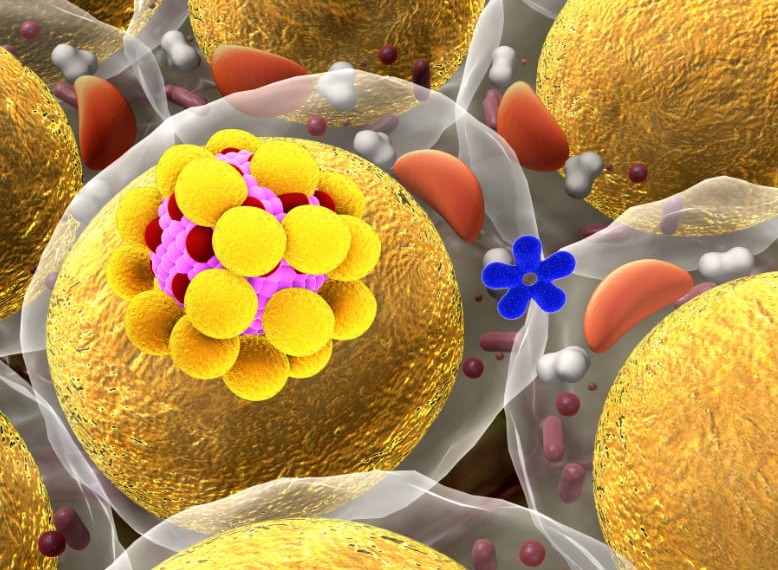- Home
- Share
- Forum
- General forums
- Research and useful tips - Ulcerative Colitis
- 6 natural ways to manage ulcerative colitis
6 natural ways to manage ulcerative colitis
- 24 views
- 0 support
- 2 comments
All comments

cactus
Good advisor
![]()
cactus
Last activity on 21/06/2023 at 17:04
Joined in 2017
15 comments posted | 14 in the Research and useful tips - Ulcerative Colitis group
Rewards
-
Good Advisor
-
Contributor
-
Messenger
-
Explorer
Thanks for the article
![]()
pancake
Good advisor
![]()
pancake
Last activity on 19/04/2023 at 13:30
Joined in 2017
13 comments posted | 10 in the Research and useful tips - Ulcerative Colitis group
Rewards
-
Good Advisor
-
Contributor
-
Messenger
-
Explorer
Has anyone tried these tips? What were your results? I'm always looking for new ideas
Give your opinion
Articles to discover...
Subscribe
You wish to be notified of new comments
Your subscription has been taken into account








Margarita_k
Community managerGood advisor
Margarita_k
Community manager
Last activity on 07/10/2020 at 11:39
Joined in 2016
1,195 comments posted | 20 in the Research and useful tips - Ulcerative Colitis group
1 of their responses was helpful to members
Rewards
Good Advisor
Contributor
Messenger
Committed
Explorer
Evaluator
Treatments for ulcerative colitis include medications (like steroids, anti-inflammatory and immunosuppressant drugs), and surgery.
But their is also a number of natural therapies, or natural ways to cotrol and even lessen your ulcerative colitis symptoms.
Here they are:
1. A healthy diet
Because a healthy diet is a cornerstone for overall health, it’s no surprise that it tops list of natural remedies for ulcerative colitis.
According to a review published in October 2014 in Clinical Gastroenterology and Hepatology, people who reported a diet high in fats were more likely to have a relapse of UC. Other studies highlighted in the paper suggested avoiding greasy foods, dairy products, caffeine, and raw fruits and vegetables if you have ulcerative colitis. But the review notes that there’s no one-size-fits-all diet for UC, so you’ll have to figure out what works best for you through trial and error.
It helps to keep a food diary to discover which foods are best for you. It can't hurt to limit certain foods, and then if your symptoms improve according to your symptom diary, to continue doing so. It's also worthwhile to avoid sugar because its effect on the pancreas hinders the output of anti-inflammatory enzymes.
2. Regular exercises
Exercise (biking, swimming, etc) is useful in managing many of the complications associated with ulcerative colitis, including decreased bone density, a weakened immune system, emotional health problems, stress, and weight gain.
A review published in August 2016 in Pharmacological Reports noted that moderate exercise releases protective myokines such as irisin from working skeletal muscles, which promotes healing and helps with inflammatory bowel disease (IBD) inflammation.
Yoga is also strongly recommended as a natural treatment for ulcerative colitis, as it promotes relaxation and targets the digestive system, flooding the area with oxygen and nutrition for healing. Find what type and frequency of exercise works for you and take it slow: too much exercise can cause mild systemic inflammation.
3. Stress control
Research indicates that stress plays a role in inflammatory bowel diseases such as ulcerative colitis. Researchers analyzed data on 2,007 adults in a Swiss IBD study and found a relationship between depression and anxiety and disease symptoms. The results were published in June 2016 in Clinical Gastroenterology and Hepatology.
Counteract stress with relaxation techniques such as meditation, deep breathing, and progressive muscle relaxation to help your body relax. In addition to heart rate, blood pressure, and respiration rate changing, blood and nutrients move into the core to support digestive function.
4. Therapy
Working with a therapist on certain mind-body techniques can help you control ulcerative colitis symptoms.
Cognitive behavioral therapy (CBT) and a technique called biofeedback may be useful, as these processes teach skills to cope with stress and pain. In CBT, you learn to recognize and change behaviors and emotions that affect you physically. According to an article published in September 2012 in the journal Therapeutic Advances in Gastroenterology, CBT can ease abdominal pain for some people. Biofeedback will teach you how to identify and control some bodily processes, such as heart rate or tension in your muscles, and can be effective in helping manage chronic pain.
5. Omega-3 fatty acids
As part of a healthy diet, additional omega-3 fatty acids, the healthy fats found in foods like fatty fish, may keep inflammation at bay and ease ulcerative colitis symptoms.
According to research, omega-3 fatty acid supplementation holds promise for people with IBD and other inflammatory conditions such as psoriasis and rheumatoid arthritis. A review article published in the January–March 2016 issue of the Annals of Gastroenterology notes that omega-3s may also reduce pro-inflammatory cytokins, which cause systemic inflammation. The authors found that more studies are needed to establish a recommended daily intake to prevent or induce remission in IBD patients.
NB: Talk to your doctor to get advice and recommendations before taking any supplements.
6. Herbal remedies
Many herbs can be useful in managing inflammation and easing ulcerative colitis symptoms. For example, Boswellia serrata, curcumin (found in turmeric, which is used in Indian cuisine), and withania have strong anti-inflammatory properties and support the body against stress. You may also find relief with chamomile and psyllium seeds.
Since infections can be problematic for people with UC, Snider also recommends an herb known as artemisia, or wormwood. A study published in August 2015 in Clinical Gastroenterology and Hepatology found curcumin is effective in inducing remission in patients with active, mild to moderate ulcerative colitis.
Source: everydayhealth.com
_______________________________________
Which of these remedies have you already tried and what has worked for you so far?
Your experience is precious to other members, don't forget it